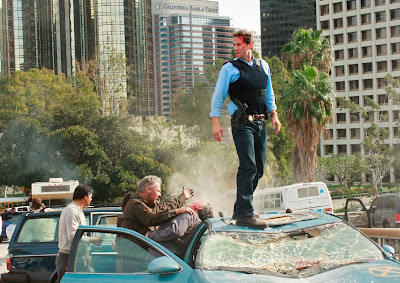Happy St. Ignatius day

It's almost St. Ignatius's feast day. Here's something that I first read when I was making that online retreat "in everyday life". It's written by John Veltri SJ but is meant to be thought of as a letter from Ignatius of Loyola. Here's what Fr. Veltri wrote about the letter ...
This letter is written in the name of Ignatius of Loyola for the person who desires to make the Spiritual Exercises journey according to notation [19] .... I composed this letter in the early eighties as a result of reading "Ignatius of Loyola Speaks to a Modern Jesuit" in Ignatius of Loyola (London: Collins, 1979) by Karl Rahner, S.J., and translated by Rosaleen Ockenden, pp.11-14. The first three pages of my composition (pp.270-273 in this manual) were adapted from Ockenden's translation of Rahner's work and in it I have used some of her very effective rhythms and phrases which capture well Ignatius' spirit and his deep conviction in God's desire to communicate personally with us. My present letter was initially formatted by Ruth McLean. -- John Veltri
The original letter at Fr. Veltri's site has a lot of hot links and is quite long, so it would be worth a visit to read the whole thing. It expresses so well what I like best about Ignatius -- his belief that God wants to and will interact directly with us. Here's just the beginning of the letter ....
****
To You . . . From Ignatius
As you know, my great desire was always
to tell people about God and God's grace,
and about Jesus ... both crucified and risen,
so that my brothers and sisters
would experience
the freedom of God.
I wanted to bring the same message
as the church had always brought
... and yet,
I felt I could put this in a new way.
Why was this so?
I had a direct encounter with God,
particularly during those months at Manresa,
where, as I told you in my autobiography,
God personally taught me like a school boy.
Yes, I, Ignatius of Loyola, Inigo as they called me,
I knew God ... Father, Son and Spirit ...
nameless and unfathomable,
mysterious and yet near ...
bestowing themselves upon me in a manner
beyond all concrete imaginings.
I knew God clearly in such nearness and grace
as was impossible to confound or mistake.
God, God's very self ...
I knew God,
not simply human words describing God.
I knew the Divine Majesty.
I knew God,
as you would say in your modern world --
experientially,
even if knowing God face to face, as I do now,
is again different ... and yet ...
somehow the same.
This is grace ... gift ...
I believe that God ... Father, Son and Spirit ...
desires to give this gift of God's self
to all who desire to be open to it.
This grace that I received during those days
at Manresa,
was not something that I considered
a special privilege
for myself or a chosen few.
Therefore, I set down the structure of this experience
in a little manual which I called
The Spiritual Exercises.
I gave these exercises to anyone
for whom such an offer of spiritual help
might seem profitable.
I did this as a lay person,
long before I went to school
to learn theology for ordination.
I gave these Exercises on the conviction
that God desires to communicate directly
and personally
to the generous person,
eager to discover God's will
and ready to act responsibly in the world
with deliberate choice.
Over the years, it has been observed
that, if persons are willing to dispose themselves generously
according to the directives of these Exercises,
in time ... God personally leads them.
God can and does communicate personally to human creatures
who are open-hearted.
A person knows God truly when this happens,
and that person
will experience the sovereign power
of God's freedom in one's own life.
This very simple and yet
stupendous conviction of mine
is a key to my spirituality ..........
*****
























